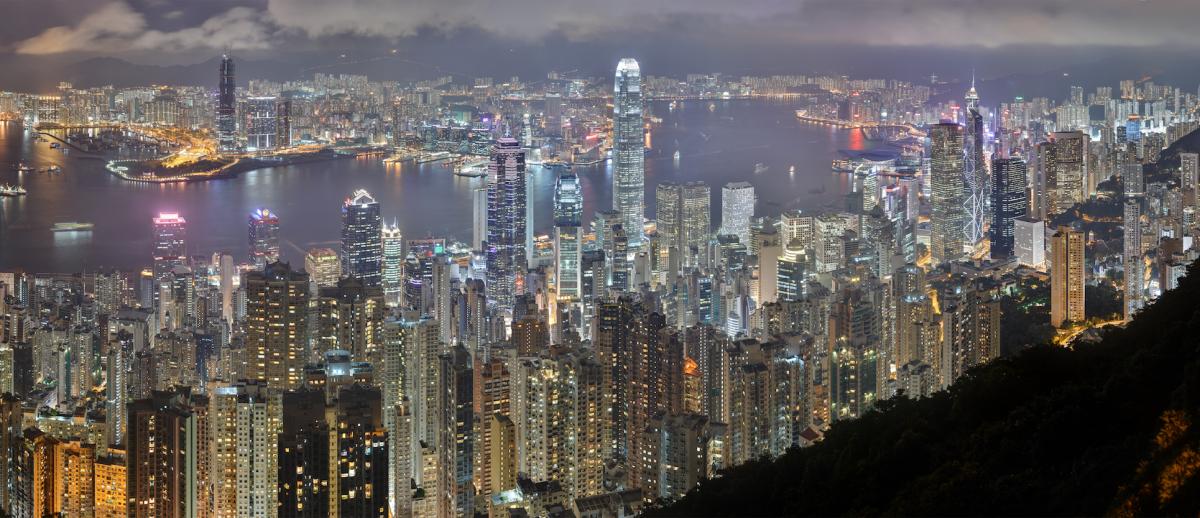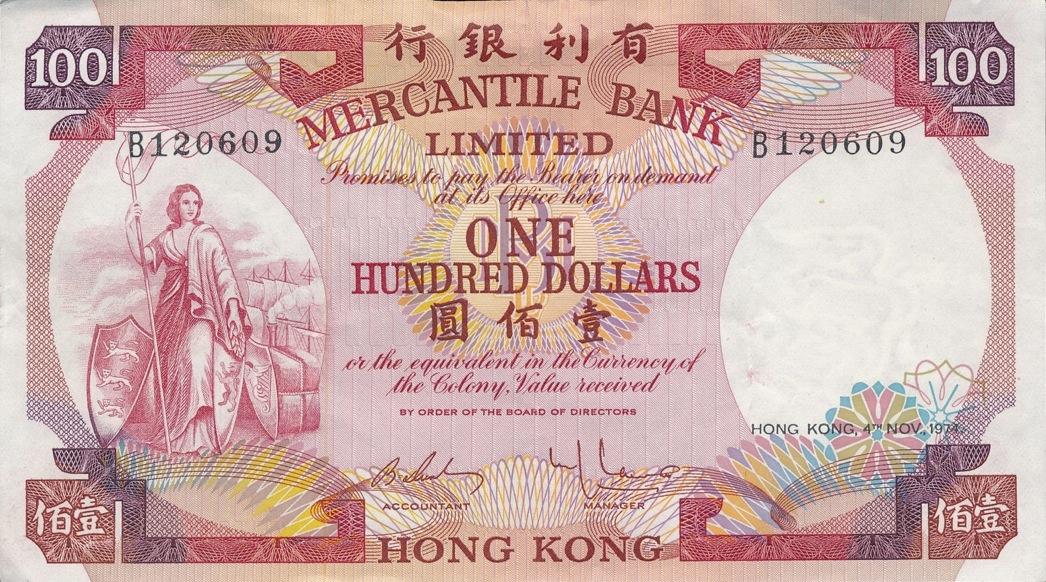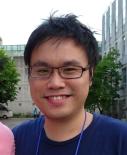Freedom as Articulation: Reflections on Liberalism in Hong Kong
archive


Freedom as Articulation: Reflections on Liberalism in Hong Kong
Freedom is often regarded as a “universal value.” But even if it is true that people sometimes demonstrate their desires for shaking off their yokes, freedom as an idea is always expressed and repressed in unique situations. Arjun Appadurai contends that the global flows of ideas comprises an “ideo-scape” which is constantly “inflected by the historical, linguistic and political situatedness of different sorts of actors.”1 To understand freedom from a global perspective, what we need is not a global freedom index that ranks different countries according to a set of quantifiable data, but more nuanced understandings of how a wide range of actors living in different corners of the world imagine, rework, and use the idea of freedom to trigger socio-cultural changes.
Hong Kong has long been associated with the word “freedom.” Formerly known as a “free city” under British colonialism, Hong Kong, after being handed over to China two decades ago, still tops several freedom indices despite facing various political and economic quandaries. In this context, one of the most common ways of talking about freedom is to regard it as a precious gift left by the British, which China’s government has promised to protect under the policy of “One Country, Two Systems,” claiming that residents of the city still enjoy the freedoms granted in the late colonial period. But for the democrats and independents who are skeptical of Beijing, Hong Kong’s freedom has shrunk considerably and is more like a rapidly depreciating treasure (if not a deceptive counterfeit). To put it another way: the idea of freedom in supposedly “postcolonial” Hong Kong is still very much colonial and objectified—it is often talked about as something granted by the old master, then inherited or ruined by the new master.
The persistence of this colonial imagination of freedom is in a way understandable: the British freedom is a profitable economic asset that sustains the city as a major powerhouse among global financial markets, especially useful for facilitating China’s state capitalism in the world economy. The British freedom also serves as a political reference or marker for residents who now live under China’s opaque regime, because the conventional colonial order is gone and citizens do not have much to grasp firmly, making it difficult to measure the changes in their way of life. But besides this pervasive colonial thinking, different cultural and political practices have emerged which make it clear that the colonial mindset is inadequate for encapsulating the city’s diverse pursuits of freedom. In these practices, “freedom” is imagined less as a colonial gift and more, borrowing Svetlana Boym’s words, like “an experience akin to adventure, which explores new borders and navigates the limits between convention and invention, responsibility and play.”2 In recent years, some of those explorations and navigations for Hong Kong and mainland China have been further conceptualized and have gained some attention in Sinophone intellectual and cultural circles. The two endeavors discussed below help to demonstrate how intellectuals rework the idea of freedom in the public sphere to create room for socio-cultural change.
One attempt is by the coining of the term “virtual liberalism” (虛擬自由主義), as proposed by the cultural studies scholar and political commentator Wing-sang Law (羅永生). The term has been circulated in the local public sphere and used by some activists to indicate the kind of “freedom” Hong Kong residents have been enjoying in recent decades. According to Law the British, to ensure a peaceful retreat of colonialism, had created a political and economic myth which makes it look acceptable for Hong Kong to have freedom without democracy. This quasi-liberalism was a historical product designed to stabilize the city when its sovereignty was about to be transferred from the British to the Chinese. This was widely believed by many people and has even become a touchstone of the conservative social imaginary. Thus, instead of fighting desperately to defend and pursue more freedom during a critical period of transition in which the city’s future was being shaped and determined, many people upheld the view that Hong Kong was already free enough given the liberties already granted. This “virtual” freedom is not fake; it has real impact, making the city’s coloniality and post-coloniality seem “liberal,” which has functioned to suppress the building of a radical political subjectivity. The idea of freedom is linked with the prefix “virtual” in order to depict the incompleteness and conservativism of a dominating colonial and postcolonial liberalism, which began in the late colonial period and is still operating today.
the idea of freedom in supposedly “postcolonial” Hong Kong is still very much colonial and objectified—it is often talked about as something granted by the old master, then inherited or ruined by the new master.
If “virtual liberalism” points to an ideological structure, “liberalist leftist” (自由主義左翼), an oxymoron coined by philosopher and bestselling author Po-chung Chow (周保松), aims to create an intellectual position or subjectivity which questions the leftist imagination of “freedom.” In short, Chow aims to rescue the idea of freedom from China’s leftist tradition, which tends to criticize the discourses of liberalism for collaborating with capitalism and individualism. As a matter of fact, mixing liberalism with leftist ideologies is nothing new in modern political and intellectual history. Neither has Chow ever denied his love of John Rawls and other socialist liberals. The reason for putting the words “liberalism” and “leftist” together should be understood in a more specific cultural and political milieu: to advocate a “leftist” position which is persistent in advocating for social change but also one that is different from some other “leftists” who simplify the idea of “freedom” as no more than a by-product of capitalism and neoliberalism. These leftists are statist and illiberal, actively waging their struggles in a resolutely antagonistic manner. As Chow has reiterated, he is unhappy with a public sphere in which many “liberals” are forced to be labeled as “rightest” and many discussions of “freedom” are too quickly branded as embracing the unregulated freedom of capital. Chow’s oxymoron is a way of enabling alternative leftist positions that are unique to the Chinese context.

100 Hong Kong Dollars - 1974 issue banknote
These two intellectual endeavors help us to reflect on the idea of freedom: not simply given as a thing-like colonial heritage, but more as an articulation—a process that constantly delinks and re-links different notions and practices to create room for socio-cultural transformations. Re-articulating a keyword does not necessarily bring any groundbreaking conceptual turn, but it can broaden the public imagination and demonstrate alternative interpretations of some common ideas that underpin a society. Law has shown the “virtual-ness” of British colonial liberalism to be a ruling and manipulative ideology that has never promised any real freedom for people. Colonial freedom is thus like an obstacle to liberation, not a gift from the colonizer. Chow’s attempt can be interpreted as a reminder of how important the idea of freedom is in Chinese leftist language, especially when it tends to be collaborating with the power of the state juggernaut and its illiberal governance. To “articulate,” as Stuart Hall has insightfully put it,
…means to utter, to speak forth, to be articulate. It carries that sense of language-ing, of expressing, etc. But we also speak of an articulated lorry (truck): a lorry where the front (cab) and back (trailer) can, but need not necessarily, be connected to one another. The two parts are connected to each other, but through a specific linkage, that can be broken. An articulation is thus the form of the connection that can make a unity of two different elements, under certain conditions.3
If colonialism objectifies freedom and makes it a gift, seeing freedom as articulation can remind us that freedom can always be “language-ed” and “connected” with other components to assemble a powerful conceptual “lorry”—one which moves people and carries them forward but does not promise to arrive at any utopian destination. Freedom is thus a gadget to be articulated for galvanizing and empowering different progressive movements. In any case, the discussion of freedom is meaningful only when it can shatter some ossified cultural boundaries and point to some living practices, which could be reframed and reformed in order for people to get closer to a better world. If freedom is really a “universal value,” it has to be “re-articulable” for all sorts of people to re-experience, re-imagine, and re-shape their status quos—or else it will be no more than grandiose yet hollow rhetoric.
1. Arjun Appadurai, “Disjuncture and Difference in the Global Cultural Economy.” Theory, Culture Society, Vol.7, No. 2-3 (1990), pp. 296.
2. Svetlana Boym, Another Freedom: The Alternative History of an Idea (Chicago: The University of Chicago Press, 2010), 5.
3. Lawrence Grossberg, ed, “On Postmodernism and Articulation: An Interview with Stuart Hall.” In Stuart Hall, Critical Dialogues in Cultural Studies (London: Routledge, 1996), 141.



